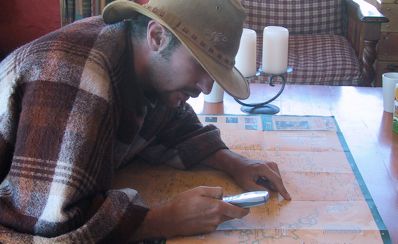The Cell phone is the Computer

 A BBC article is reporting how cell phones have become ubiquitous in the developing world, and how they instead of "regular" computers will be the communications, learning and business platform in many of those regions.
A BBC article is reporting how cell phones have become ubiquitous in the developing world, and how they instead of "regular" computers will be the communications, learning and business platform in many of those regions.
If I had told you ten years ago that by the end of 2007 there would be an international network of wirelessly-connected computers throughout the developing world, you might well have said it wasn't possible.
...
But regardless of where the developer is located, I think it's time that we recognised that for the majority of the world's population, and for the foreseeable future, the cell phone is the computer, and it will be the portal to the internet, and the communications tool, and the schoolbook, and the vaccination record, and the family album, and many other things, just as soon as someone, somewhere, sits down and writes the software that allows these functions to be performed.
To make software in this space, simple, mobile technologies are the ones that matter. This means SMS-based information retrieval, mobile (or multi-platform using detectors like WURFL to morph the UI) web applications, inter-application communication techniques like XMPP, P2P architectures, and hopefully open platforms like GNOME Mobile and Android will be where the action is.
It is also important to get rid of the "you’re never offline" mindset. We’re talking about a world where network or power outages are frequent and data transfer fees can be high. So good offline access to data is mandatory, although constrained by the potentially small (but growing!) storage space of cell phones.
See my "Solving the logistics of Mamona" and "The World’s Internet Tablet?" posts, and the Midgard positioning related to this.
Via Boing Boing Gadgets.
